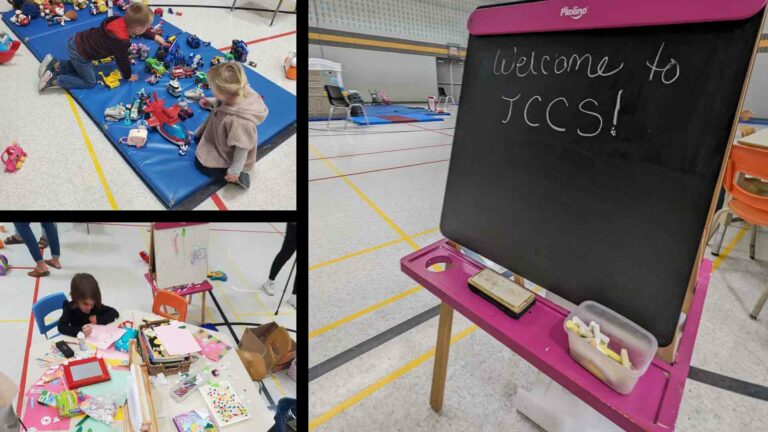Everyone has likely tasted onion dip and millions of homemakers have made it. The recipe is incredibly simple: mix dried onion soup mix with 2 cups of sour cream – voilà you are done! Place it in a bowl and surround it with chips, crackers, celery and carrot sticks, and any other veggies you think your guests will enjoy. Be suave and call it crudités!
I still remember the first time I tasted it, at a Tupperware party in the early 80s (though it has been around since 1954!). I tentatively took a tiny beige blob and placed it on my plate. After tasting it with a ruffled potato chip, I eagerly returned for more.
I was fascinated to observe a display about homemaking through the decades in a museum that showed a 1950s-type kitchen and mentioned onion dip (also known as French onion dip, and originally known as California dip, where an unknown homemaker first created it). Their interpretation was that this “California dip” totally changed hospitality throughout America and Canada. Previously, if one was going to entertain, a full dinner would be expected, perhaps with intricate hors d’oeuvres beforehand. Remember, you couldn’t run into Costco or Walmart’s frozen section and grab mini quiche or ready-to-cook breaded shrimp back then.
After the recipe was printed in a newspaper, the Lipton Company got hold of it and began advertising it on the popular Arthur Godfrey Show on television. The California dip usage spread like wildfire and Lipton’s onion soup mix flew off the shelves. Pictures were shown of a host and hostess cheerfully serving chips and dip and veggies to their guests. This was so easy to prepare that people began inviting friends over more often, because the workload had lessened significantly. Not only did it become incredibly popular in the 50s, it has remained so ever since.
Don’t let pride get in the way
Onion dip probably didn’t “change the world” in a big way, but by providing an easier way to entertain, it did promote friendship and fellowship. It was a step in the right direction.
How often have you heard someone say that they don’t have the time, energy, money, or nice enough house to provide hospitality to others? With an attitude that “We cannot do it unless we reach a certain level of perfection,” we actually may fall into pride and ignore God’s Word that calls us to care for one another. Rosaria Butterfield in her book The Gospel Comes With a House Key says:
“God calls Christians to practice hospitality in order to build loving Christian communities, to build nightly table fellowship with fellow image bearers, to ease the pain of orphanhood, widowhood, and prison, to be qualified as elders in the church, and to be good and faithful stewards of what God has given to us in the person, work, example, obedience, and suffering of the Lord Jesus Christ…. God calls us to practice hospitality as a daily way of life, not as an occasional activity when time and finance allow…. God promises to put the lonely in families (Ps 68:6) and he intends to use your house as living proof.”
If we only think about our own family and relatives and do not reach out to others, we miss the opportunity to build up one another in our churches. Instead, by inviting others to our imperfect home for some basic food and company, we make time to listen to one another.
We learn that Joe just lost his job and we might have a connection that could help him. We find out that Sally is an expert seamstress, and maybe she can help us understand how to make the shirt we were confused about. We learn that Janet has a book group that meets monthly at her home and Jed can no longer cut his lawn because of his back trouble. Myrtle just found out she has cancer and she is frightened, and Darius is worried sick about his teenaged son. We pray together. We sing hymns or psalms together. We show love, and we rack our brains to think of what else we can do to help. We follow Hebrews 10:24-25:
“And let us consider how to stir up one another to love and good works, not neglecting to meet together, as is the habit of some, but encouraging one another, and all the more as you see the Day drawing near.”
Or, alternatively, we say that we are tired or too poor, and we always stay home alone and watch television or plug ourselves into our phones or computers. Sports and movies and funny videos are way more interesting, and even easier than serving onion dip.
Some people say that they need all day Sunday to spend time with their immediate family because they work and have other activities on the other six days. Consider the fact that showing hospitality is a family activity that your kids will learn from. And if you only use two to three hours, you will still have time left over to interact as family.
The amount of hospitality shown will vary from family to family. But every adult should be exhibiting some, even if they just have a small apartment – they might invite two people over for coffee and discussion. It’s the time together that counts far more than the fare that is served or the furniture and house that it’s served in.
Simplify
Fellowship doesn’t have to include a meal! Invite someone for chatting, singing, praying, and/or talking about what God taught you in the sermon, and serve nothing, or only coffee and store-bought cookies or coffee cake. There’s no need to one-up someone else.
As mentioned, onion dip, chips, and veggies have been one way that people can easily show hospitality to others. You could meet in a park on a beautiful day, as well. Other easy ways might include:
- Serve hors d’oeuvres from the frozen section, heated in your oven for a short while.
- Have a meal of soup and buns, as has been the tradition for years. If you cannot manage homemade soup, canned soup as is or “doctored up” (such as adding leftover chicken and carbs to the basic soup) is fine. Homemade bread or biscuits are great, but store-bought Italian bread (available for a low cost at Walmart) can suffice as well.
- Pre-made frozen meatballs, heated with marinara or sweet and sour sauce are always good. Buy the sauce or make an easy one by mixing one jar of chili sauce (found in the same grocery aisle as the ketchup) and one jar of grape jam/jelly; heat, thicken if necessary, and pour over the meatballs.
- Cookies, cake, pudding, ice cream, or pie, whether homemade or store-bought are a good option.
- Fruit is a healthy choice. If you don’t have time to make a fruit salad, just serve sliced watermelon, bunches of grapes, orange slices, or strawberries.
Make a practice of inviting people over regularly, perhaps once or twice a month to get started. Take an interest in them. And don’t just invite the same family and friends – work your way through your church directory and invite people that you barely know. The point is to get to know them better so you can build one another up in the Lord.
Therefore encourage one another and build one another up, just as you are doing. – 1 Thessalonians 5:11














